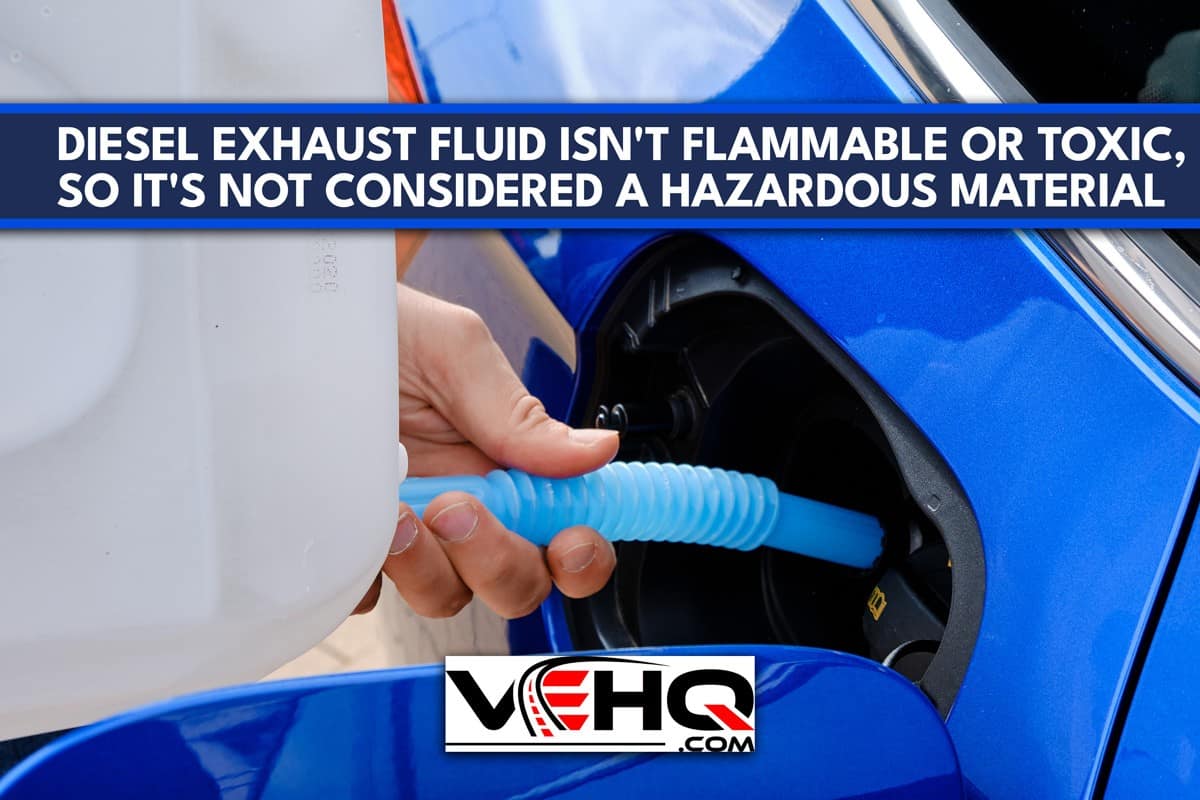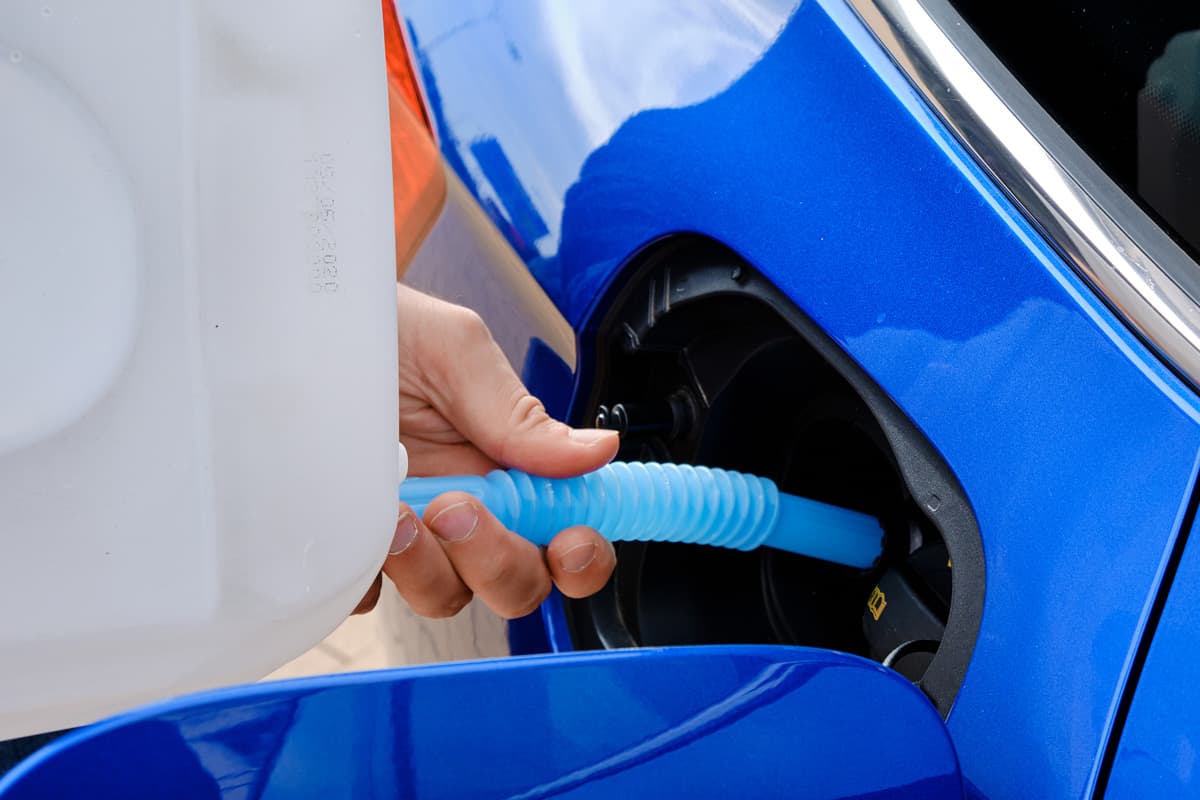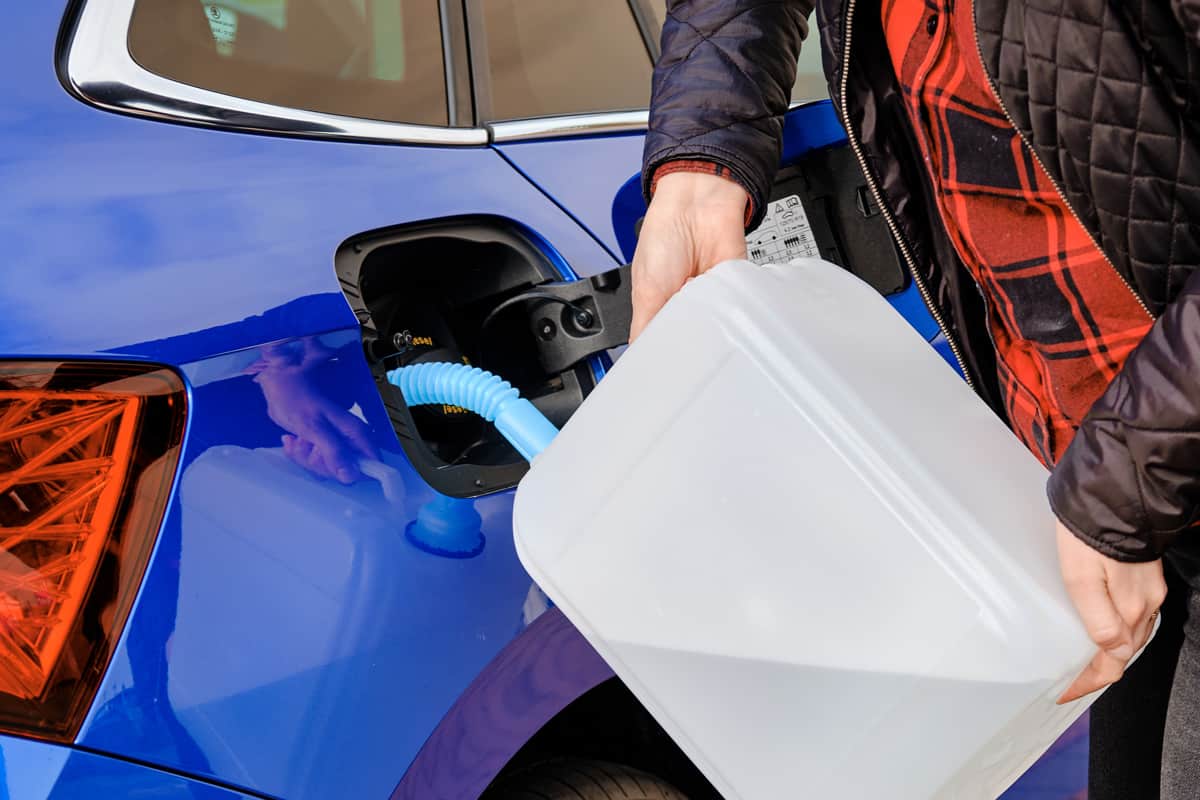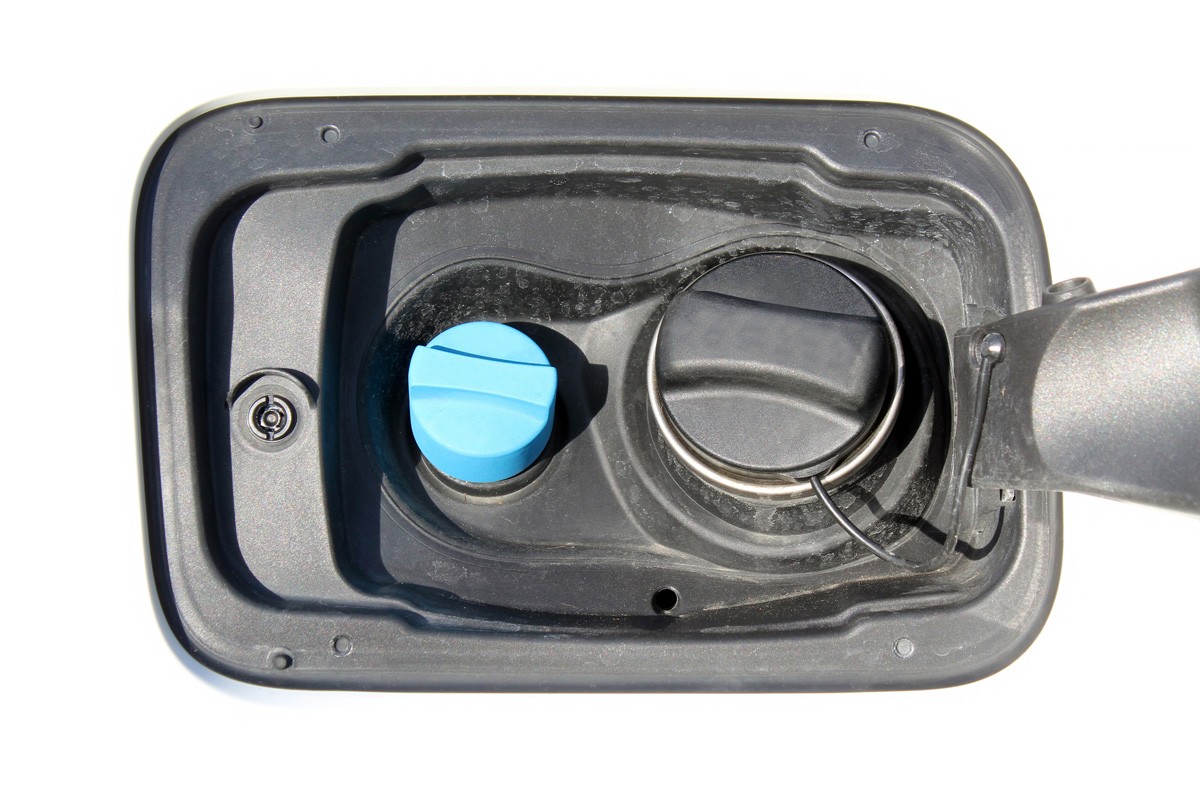Diesel exhaust fluid is a solution that helps to reduce emissions from diesel engines. But do you need to worry about DEF being a hazardous material? We did the research to bring you the answer.
Diesel exhaust fluid isn't flammable or toxic, so it's not considered a hazardous material. However, it is corrosive, so it's important to handle DEF properly and store it in a safe place. In addition, inhaling DEF fumes can irritate your lungs, so it's important to use it in a well-ventilated area.
It's good to know that DEF is not a hazardous material, but it's important to handle it with care. In this article, we will explain what diesel exhaust fluid is and how to safely store and use it. In addition, we will answer other frequently asked questions about diesel exhaust fluid, so read on!

Is Diesel Exhaust Fluid Hazardous?
Diesel exhaust fluid, or DEF, is a solution that helps to reduce emissions from diesel engines. It's made up of urea and deionized water, and it's non-flammable, non-toxic, and non-hazardous.
However, it is corrosive, so it's important to handle it properly and store it in a safe place. In addition, inhaling DEF fumes can irritate your lungs, so it's important to use it in a well-ventilated area.
DEF is not considered a hazardous material, but there are some things to keep in mind when handling it. Here are some tips for safely storing and using DEF:
- Store DEF in a cool, dry place.
- Do not store DEF in an open container.
- If you spill DEF, clean it up immediately and wash your hands.
- Wear gloves and a face mask when handling DEF.
- Do not inhale DEF fumes.
It is also important to know that DEF is corrosive when it comes into contact with metal. In particular, aluminum, brass, copper, zinc, and carbon steel are all susceptible to corrosion from DEF. If you spill DEF on these materials, it's important to clean them up immediately.
Here are some tips for cleaning up a DEF spill:
- Wear gloves and a face mask when cleaning up the spill.
- Soak up the spill with absorbent material.
- Dispose of the absorbent material in a sealed container.
- Wash the area with soap and water.
When it comes to DEF, there are a few things to keep in mind. However, as long as you handle it carefully and store it properly, you don't need to worry about it being a hazardous material.

Can You Dump DEF On The Ground?
Even though it isn't a hazardous material, you still can't dump DEF on the ground. DEF is corrosive, so it can damage plant life and the environment if it's not disposed of properly. In addition, dumping DEF is illegal in most states.
If you need to dispose of DEF, the best way to do it is to take it to a recycling center. Many auto parts stores and service stations have recycling programs for DEF. You can also check with your local government to see if there are any special disposal requirements in your area.
In general, you should always dispose of DEF properly even though it isn't considered a hazardous material. Dumping it on the ground is bad for the environment, and it's against the law.
What Happens If You Inhale Diesel Exhaust Fluid?
Inhaling diesel exhaust fluid can cause irritation to your lungs and respiratory system. This is because DEF is made up of urea, a substance that can be harmful if inhaled.
When you inhale DEF fumes, it can irritate your nose, throat, and lungs. In some cases, it can also cause coughing and difficulty breathing. If you experience any of these symptoms, it's important to get to fresh air immediately and seek medical attention if necessary.
In general, it's best to avoid inhaling DEF fumes. However, if you do inhale them, it's important to get to fresh air as soon as possible and seek medical attention if necessary.
While other products such as antifreeze have much higher levels of toxicity, it's still important to be careful when handling DEF. Inhaling the fumes can cause irritation, so it's best to use it in a well-ventilated area.

What Happens If You Get Diesel Exhaust Fluid On Your Skin?
If you get diesel exhaust fluid on your skin, it can cause irritation. This is because DEF is made up of urea, a substance that can be harmful if it comes into contact with your skin.
When DEF comes into contact with your skin, it can cause redness, itching, and burning. In some cases, it can also cause blistering. If you experience any of these symptoms, it's important to wash the area with cool water.
Then follow up on the area with mild soap and cool water. You should also seek medical attention if the irritation doesn't go away or if it gets worse.
In general, it's best to avoid getting DEF on your skin. Use gloves when handling it, and be sure to wash your hands thoroughly after you're done.
How Do You Add Diesel Exhaust Fluid?
Diesel exhaust fluid is typically added using a pump and nozzle system. The pump is used to draw the DEF from the storage container, and the nozzle is used to dispense it into the vehicle's tank.
Your vehicle will have a specific place to add DEF, typically by the fuel cap. Once you've located the fill spot, remove the cap and attach the nozzle. Pump the DEF into the tank until it's full.
Be sure to follow the manufacturer's instructions for adding DEF to your vehicle. Overfilling the tank can damage your vehicle, so it's important to add only as much as is needed.
It is also a good idea to wear gloves when handling DEF and check your vehicle's owner's manual for recommendations on how often to add it.
In general, adding DEF to your vehicle is a simple process. Just be sure to follow the manufacturer's instructions and take precautions to avoid coming into contact with it.
How Often Do You Add Diesel Exhaust Fluid?

On average, you should add diesel exhaust fluid every third or fourth fill-up. However, it's important to check your owner's manual for specific instructions from the manufacturer.
Typically, the consumption ratio of DEF to diesel is about 2-3 to 100, but this varies depending on the make and model of your vehicle.
It's important to be diligent about adding DEF to your vehicle because running out can damage your engine. If you're ever in doubt, it's always better to err on the side of adding more rather than less.
When in doubt, refer to your owner's manual or contact the manufacturer for specific instructions on how often to add DEF to your vehicle.
Diesel exhaust fluid is a necessary part of operating a diesel vehicle. If you run out of diesel exhaust fluid, you may notice a poor performance from your vehicle, as the DEF is used in the emission reduction process.
What Year Vehicles Require Diesel Exhaust Fluid?
Diesel-powered vehicles built since 2010 require diesel exhaust fluid. DEF is used in the selective catalytic reduction system to reduce emissions of nitrogen oxides.
The reason DEF is necessary for these vehicles is that the government has mandated stricter emission standards for vehicles. To meet these standards, manufacturers have had to find ways to reduce the emissions of nitrogen oxides.
DEF is one way they've been able to do this. Adding DEF to the exhaust stream reduces the emissions of nitrogen oxides.
If you have a diesel-powered vehicle that was built in 2010, it will require DEF. Be sure to check your owner's manual for specific instructions on how to add it to your vehicle.

Can You Bypass The DEF System?
While the chances of being caught are low, the penalties for bypassing the DEF system are high. If you're caught, expect a steep fine depending on your state.
It's simply not worth the risk to try and bypass the DEF system. The best thing to do is follow the law and add DEF to your vehicle as required.
As we mentioned earlier, if your diesel vehicle is older than 2010, it won't have a DEF system, and you won't be required to add DEF to it.
Since it's the law and your vehicle will run better if you do, we recommend adding DEF to your vehicle as required.
Final Thoughts

Diesel exhaust fluid is a necessary part of operating a diesel vehicle. If you run out of diesel exhaust fluid, you may notice poor performance from your vehicle, as the DEF is used in the emission reduction process.
While it's not hazardous, you should still take care when handling it as it can cause skin irritation. It's best to wear gloves when adding DEF to your vehicle.
Made it to the end? Here are other articles you might find helpful:
